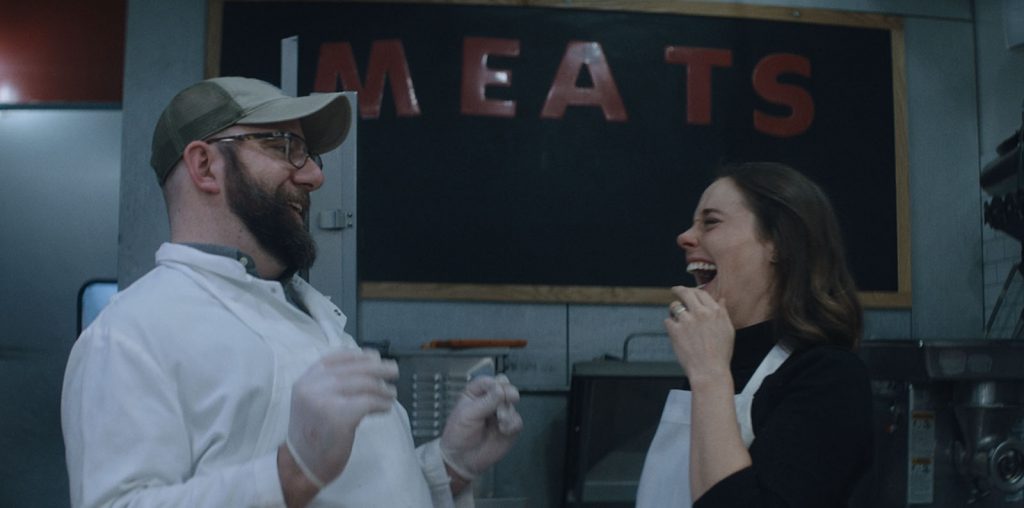
The fiction feature debut from award-winning documentary filmmaker Andrew Jarecki is as schizoid in many respects as its main character. As he did with 2003’s Capturing The Friedmans, the director spills a dysfunctional family’s dark secrets. This time though, the result comes across as two completely separate movies stitched together.
All Good Things is based on the true story of Robert Durst, the black sheep heir to a Manhattan real estate dynasty. In the film, his name has been changed to David Marks and his story is told in flashback from the witness stand of a 2003 murder trial in Galveston. Ryan Gosling stars.
In his early 70s incarnation, Marks is a thoroughly sympathetic figure, an affable pothead goof up who doesn’t remotely fit in his domineering father’s (Frank Langella) world or have the slightest interest in the family business. He takes an immediate interest, on the other hand, in a tenant whose leaky sink he’s sent to repair.
Recently arrived from Mineola, Katie McCarthy is everything Sanford Marks would look down his nose at, a quality which, along with her sunny smile and unfettered spirit, inspires David to make her Mrs. Marks. Kirsten Dunst delivers a beautifully calibrated performance.
Eager to make a clean break, the pair escapes to Vermont to realize David’s dream of opening a health food store and, for a time, are blissfully happy together. The name of the place is, yes, All Good Things. I wish Jarecki had lingered a bit longer on this chapter so we might have a clearer sense of what the early months of their marriage were like but it’s virtually a blur. Before you know it, the couple is back in the city-due to never clearly explained pressure from the old man-where they live in luxury but ever diminishing bliss.
The principle reason life becomes a living hell for Katie: Her husband suddenly and without satisfactory explanation descends into madness. One minute they’re happily purveying tofu, the next David’s talking to himself and roughing her up at a family reunion. Her family’s! Dunst does a convincing job of conveying the confusion and mounting fear her character experiences as she gradually realizes she no longer has any idea who David is. At least until Katie vanishes without a trace in 1982. Her body has never been found.
That’s the first movie. The second follows David as he moves to Texas and assumes a new identity as a woman. What ensues is a lurid series of deceptions, betrayals and murders complete with glimpses of dismemberment but lacking in meaningful insight into the central character’s motivation. Oh sure, his father’s a manipulative bastard and, as a child, David witnessed his mother’s suicide but it’s a little too much of a leap to say these explain a penchant for interstate crossdressing and homicide.
Gosling’s affect-free, almost zombie-like performance throughout this part of the picture offers little help and, as a result, what we’re left with is an artsy version of the sort of true crime tabloid melodrama which would normally be the province of The Lifetime Channel. Of course it’s interesting that all this is based on real life courtroom testimony-at least the portion which isn’t wholesale speculation. And, of course, it’s interesting that the film’s subject, Robert Durst, was never convicted of any of the misdeeds depicted (A free man to this day, he reportedly attended a private screening and gave the movie a thumbs up). That doesn’t mean the picture as a whole is likely to prove of much interest to most viewers. Thanks mainly to Dunst it has its moments. Virtually all good things to be said, however, are to be said about its first half.
